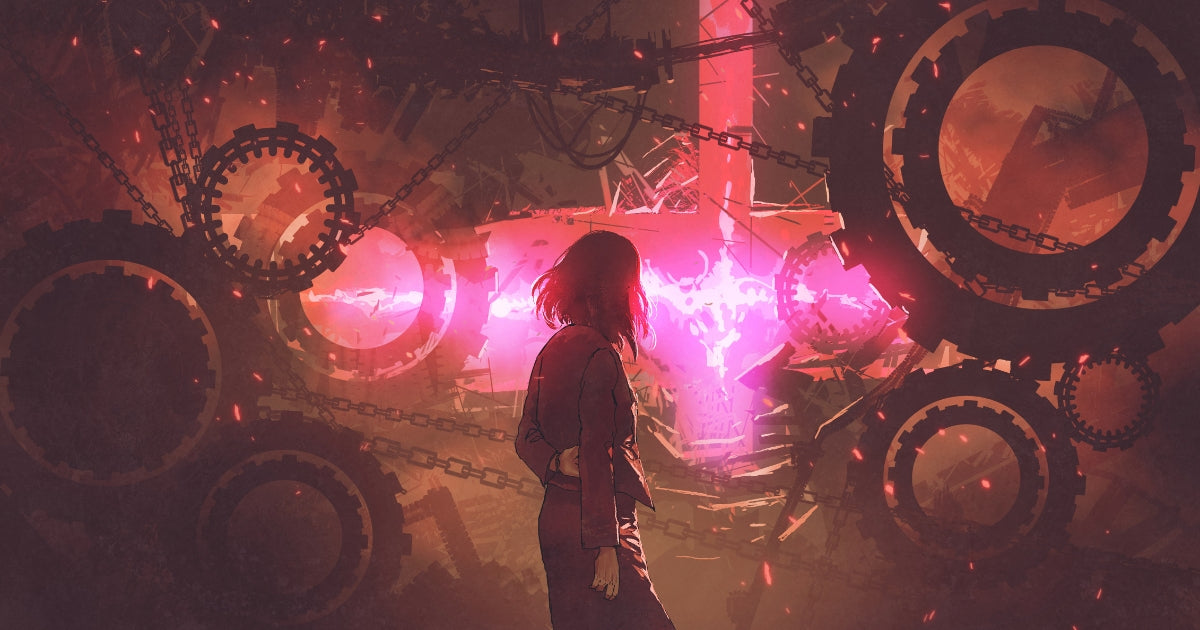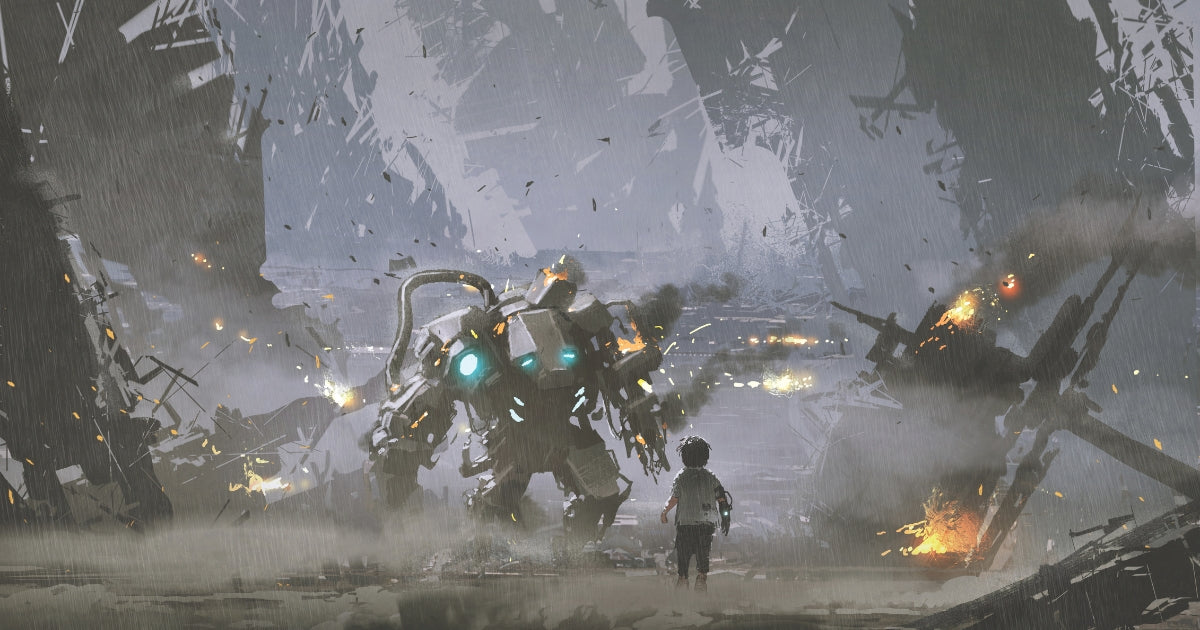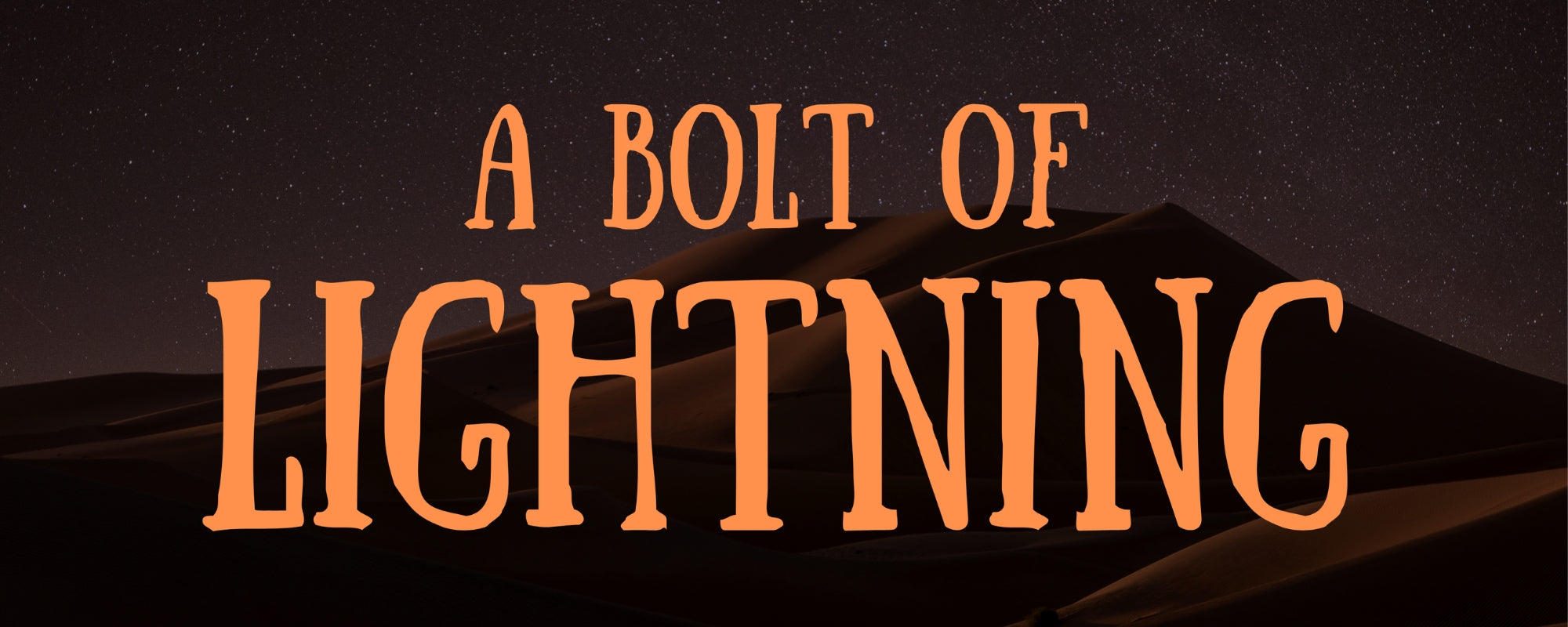
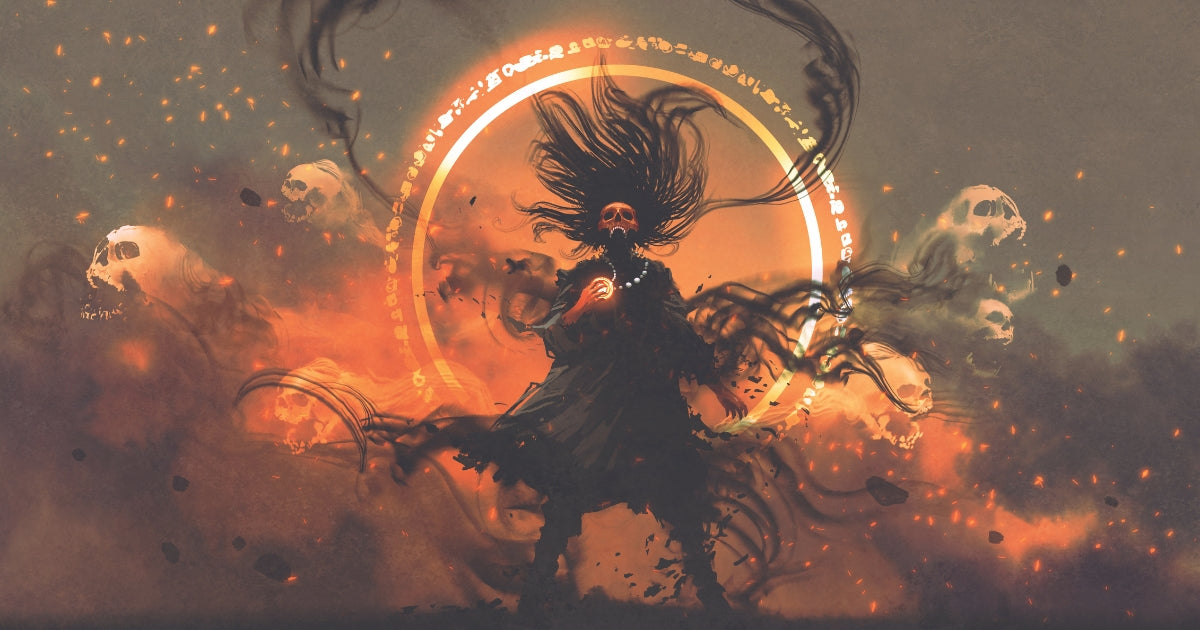
A Bolt of Lightning
By Malena Salazar Maciá
Translated by Toshiya Kamei
Audio Narration by Idalia Valles
Still in the delirium of fever, the boy heard his mother pray, “May Sutej of the South have mercy on him.” Then came her sobs, and her pleas for salvation and healing. She was willing to do whatever it took to save her son.
The boy had no strength left in his body. As soon as the controlled contagion began to spread in the radioactive waste treatment plant, the Gentium woman did everything possible to shield him from the guards, who were clad in their airtight suits, spewing the latest strain of virus cooked up in the resident doctor’s lab.
The place was overrun with children who suffered from sickness and empty stomachs, and who clung to the feet of their parents. The Daonais saw this as a distraction, and a detriment to their colony's productivity, so they ordered
a massive sterilization of the laborers. Moreover, the Gentiums desired something other than what they were given. This yearning was seen as yet another problem for the Daonais.
It wouldn’t take much for the Daonais to get rid of the nuisances. All they had to do was bark orders, make gestures, and send messages. The Gentiums were mere objects—properties that sustained the production and wealth of their corporate masters. The Gentiums were flesh for the Daonais’ ego—a breeding ground for the sins they willfully committed in the fabulous orgies that often took place in the high-tech city of Metro.
The Daonais ordered, and the Gentiums obeyed. The Daonais wanted a new toy—a new biological weapon to use against undesirable wannabes. What did they care if they had to slaughter faceless little creatures with iron shackles around their ankles?
For a brief while, the Gentium woman took comfort in her son’s seemingly stabilized condition. But the genetically engineered virus rendered any containment measure useless. Fever ravaged the boy’s body. Pustules erupted on his skin. The boy drooled and vomited black clots. He buried his face in his mother’s arms. She had managed to obtain refuge inside the doctor’s quarters in exchange for sex, and for offering her son as a test subject. The doctor was a faithful watchdog chained to the gates of the Daonais’ hell. He’d unleashed the horror upon the children who had squirmed on the treatment floor.
Unfortunately, the boy was useless to the doctor’s research. His rotten flesh didn’t provide a solution to the Daonais’ demands. The doctor touched the child’s neck, almost tenderly, then squeezed it until he gasped.
“He’s no use! He’s just a genetic waste!” the doctor spat. “Decide! The desert or the guards? Them or me?”
The mother chose the beast-gods, who were synonymous with the desert. They were, after all, more merciful than the Daonais, who had no tolerance for the desperate gazes of useless children, much less the sick parasites who were incapable of working. Quite a number of wretched souls were willing to leave behind their masonry to work for three insipid meals a day and gain shelter from the sun, even if the shelter was next to a radioactive waste pit.
The guards picked the boy up like a rag doll and dragged him away like he no longer existed. The Gentium woman shouted after them until her throat gave out. After all, she was still a mother. The boy was hurled like a sack of waste onto a hovercraft that was piled high with other infected children. Electricity sparked. He heard his mother's cries go silent.
***
The guards unloaded the children onto the scorching hot sand. The boy’s body cried out. The breeze offered no relief for his damaged flesh, which was a consequence of the virus—a virus that had been designed to decimate thousands of lives. Winged scavengers soared overhead, casting sinister shadows as they circled.
The temperature dropped, and the boy regained consciousness. Through the gauze covering on his face, he stared at the swells of sand, and the inflamed sky filled with glittering nightmares. A figure with dark skin, flame-red hair, and muscular leopard’s feet appeared to guide the storm's path of destruction.
It was the beast-god, Sutej of the South. His retinue of lightning thundered in the heavens and raged across the dunes. He stopped before the heap of the terminally ill children and tore them apart. He paid no heed to their wretched cries as they clung to the last threads of life. The boy, his neck still marked by the doctor's terrible grip, breathed in the putrid breath pouring from the beast-god's mouth, and fainted.
***
The boy woke sometime later. It was dark by the time the beast-god’s thunderstorm had subsided. The boy sat on the ground. He had no fever, no pain. He was just haggard. Eerie whispers buzzed in his ears, and in his mind, snaked through his body. Someone had placed an airtight glass jar between his small fingers.
He was a bandaged specter of pus and misery. The boy didn’t need to walk far to find the radioactive waste treatment plant where he had worked with his mother. She, without his knowledge, had offered herself as a sacrifice to the beast-gods—one life for another; an ancestral ritual practiced even before the Great Cataclysm.
The boy slipped into the doctor’s house. The glass jar was to be a gift for the doctor from the beast-god himself.
The following day, guards from the neighboring colony marched into the city. The facilities looked abandoned. Everyone—laborers and foremen alike—lay scattered on the ground, curled up on the dunes like glassy-eyed fetuses. They gave off a putrid stench. Not even desert scavengers would consider them for food. Reddish-black scorpions squirmed out of their sand-filled mouths.
Copyright 2021 © Malena Salazar Maciá
The Author
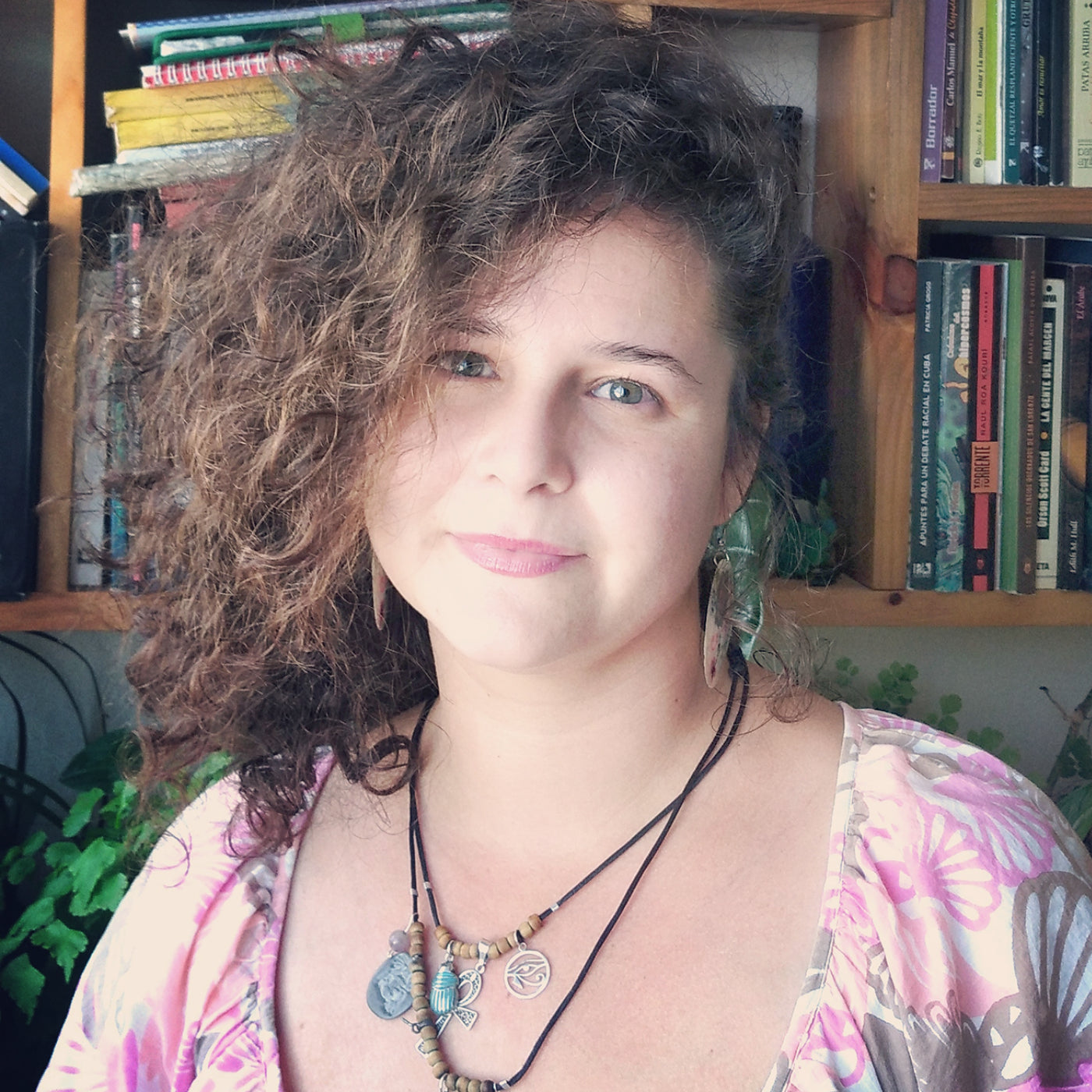
Malena Salazar Maciá
Continue reading

Subscribe to our newsletter
Promotions, new products, and sales. Directly to your inbox.


